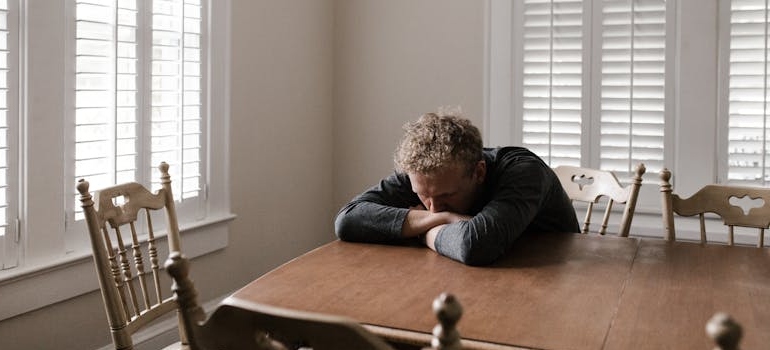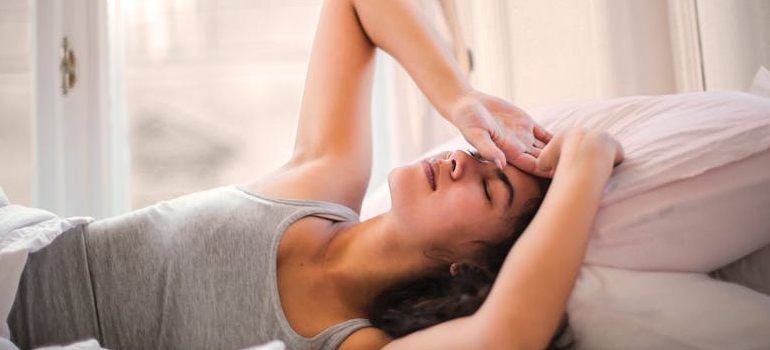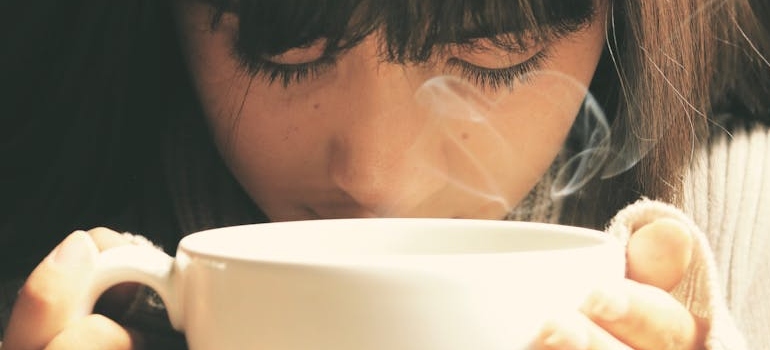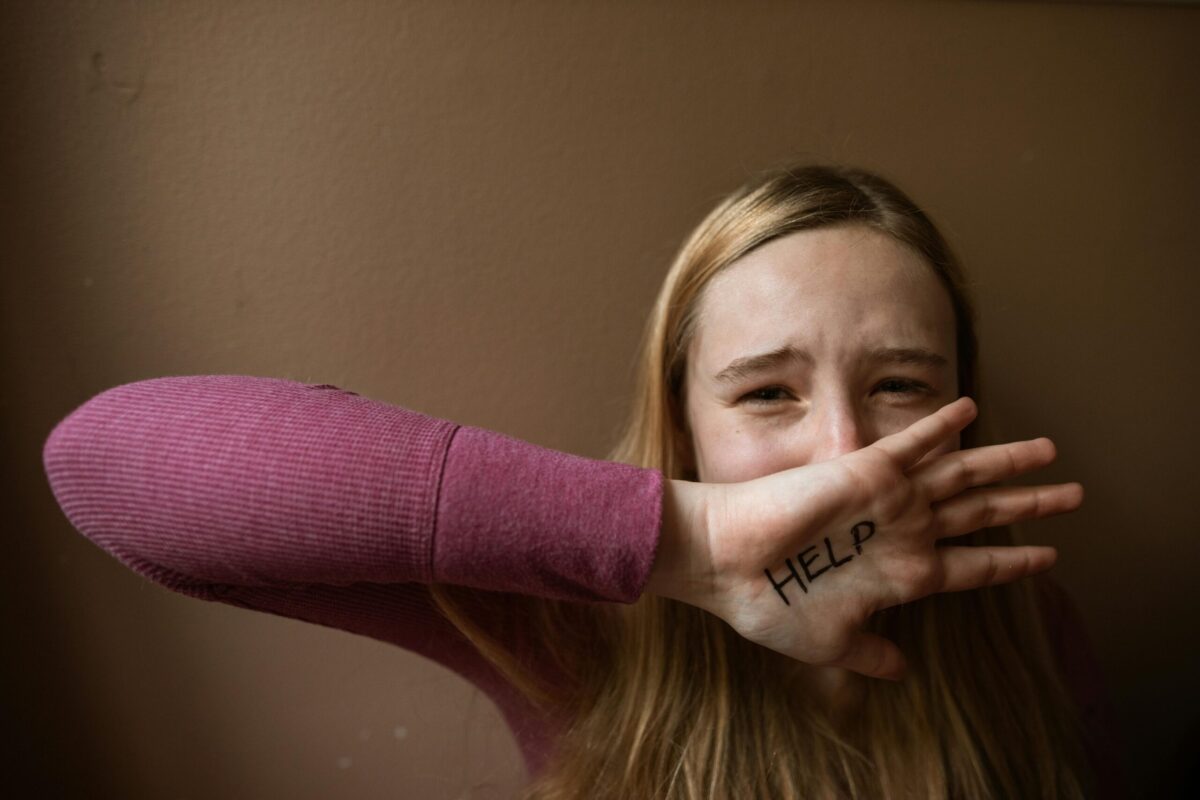Feeling anxiety occasionally is a normal occurrence, and everybody experiences it. However, when this anxiety becomes overwhelming and starts impacting your life significantly, you might be experiencing an anxiety disorder. Experts at our mental health treatment centers in Massachusetts have noticed that some people experience particularly burdensome symptoms in the morning, leading them to wonder why anxiety can feel worse in the morning.
What Is Morning Anxiety?
Anxiety is defined as feelings of worry and fear caused by an interpretation of the future as dangerous, risky, or ambiguous. While feeling anxious is completely normal in various situations, some people may experience an overwhelming amount of fear and worry, negatively impacting their daily functioning and performance. When stress related to anxiety is so severe, difficult to control, and significantly affects your functioning, you might be struggling with an anxiety disorder.

There are several types of anxiety disorders treated at our anxiety therapy in Massachusetts, some more known to the public. Once people started complaining about heightened anxiety in the morning specifically, both scientists and practitioners became interested in why is anxiety worse in the morning for some people and what can be done to prevent or address it.
Scientists are associating morning anxiety with increased cortisol, the body’s main stress hormone. The link between cortisol and anxiety is bi-directional, meaning that chronic elevation of cortisol levels can contribute to anxiety symptoms, and anxiety can result in increased levels of cortisol. Fortunately, it is possible to break this cycle, and there are several strategies available to do that.
For starters, it’s important to understand what the causes of heightened anxiety in the morning hours are.
Reasons for Increased Anxiety Upon Waking
There are several reasons for increased anxiety upon waking. Some are related to biological factors, others to your habits, and some to particular life challenges.
- Distress and feelings of anxiety often correlate with hormonal status, particularly levels of cortisol, also known as the stress hormone. Your cortisol may be elevated for different reasons, and it’s not a bad idea to check your hormones before looking into other ways of fixing morning anxiety
- Poor habits, like bad sleeping patterns and poor diet, can also be disruptive and cause various physiological and mental health issues. That’s why mood disorder treatment centers highlight how poor quality of sleep is especially problematic and can impact other mood disorders as well.
- Particular life challenges can contribute to feelings of anxiety. Financial issues, work struggles, or relationship problems can also be the reasons behind feeling more anxious upon waking up.
Identifying your common triggers for morning anxiety can help you address it in a way that’s the least burdensome and brings the best results.

Common Early Morning Anxiety Triggers
What you expose yourself to in the morning can be early morning anxiety triggers. Modern technology is a necessity for our daily lives, and many people reach for their phones first thing in the morning. Various content, often disturbing or worrisome, bombards you. Overconsumption of negative news can easily lead to morning anxiety.
Additionally, if you’re getting ready to go to work and experience more work-related pressure and challenges, you might start worrying about it in advance and fearing what the day might bring. Coupled with financial stress due to increasing costs of living or unpaid bills, the pressure of the day at its beginning can already be so challenging that you start experiencing symptoms of morning anxiety.
How Poor Sleep Contributes to Morning Anxiety
Our daily habits can be both causes of anxiety in the morning and a resource to fight against it. It is already well known that good sleeping patterns and good quality of sleep play an important role in emotional regulation. Not getting enough sleep, waking up frequently, or experiencing nightmares can all result in feeling tired, stressed, and anxious in the morning.
The good news is that improving your sleep pattern will improve how you feel in the morning and can contribute to the reduction of morning anxiety. Simple strategies for improving sleep include having a structured sleep routine, staying off screens two hours prior to going to bed, and practicing gratitude and mindfulness before sleeping. Making these small changes can significantly improve the quality of your sleep and, with that, how you feel in the morning.

How Diet and Lifestyle Affect Morning Anxiety
Among the reasons behind feeling more anxious upon waking up is an inadequate diet. The role of nutrition was long overlooked, but much research today shows we ought to pay more attention to it. Lack of vitamin D, B-complex vitamins, omega fats, magnesium, and selenium can result in chemical imbalances and contribute to mental health issues.
Researchers found a link between dietary habits and many mental health problems, including anxiety and depression disorder. In particular, unhealthy habits, like overconsumption of caffeine and sugar, can contribute to morning anxiety.
Proper hydration and nutrition are fairly easy to ensure. As there are many different pieces of advice online, you might want to consult an expert or your physician before making any grand changes, but enriching your diet with fruits, vegetables, seeds, nuts, and fish is a good start for a healthy meal plan. Soups and water, rather than coffee, will ensure the daily hydration necessary to feel good and anxiety-free throughout the day.
Practical Strategies to Manage Morning Anxiety
Equally important to understanding why anxiety can feel worse in the morning is knowing how to manage it. There are several practical strategies addressing specific triggers for morning anxiety:
- Grounding techniques can help you experience thoughts and feelings non-judgmentally and, therefore, stop them from triggering worry, fear, and restlessness.
- A structured morning routine can invite peace and order into your life, preventing your mind from wandering off and instead keeping it busy with the routine.
- Physical activities and a healthy diet can balance your hormones and contribute to your overall health.
- Screen detox, or choosing to spend mornings without looking at a screen, can prevent you from exposing yourself to early morning anxiety triggers.
You can choose a strategy that works best for you or combine them for better results. Remember, if they are insufficient to help you fight morning anxiety, it might be best to look for professional assistance on the matter.

Breathing Exercises and Mindfulness Practices
Anyone who has ever exercised or gone for a run knows the importance of having a specific breathing pattern. Although simple, breathing exercises can significantly impact how you feel, contributing to the reduction of anxiety. This is because deep breathing can calm our central nervous system (CNS) down. There are several techniques, and you might find one more enjoyable than the other.
- As they don’t take much time, you can try different breathing patterns early in the morning and for several minutes only. You will quickly find one that works for you, and it can become your go-to technique throughout the day.
Mindfulness is also known to help calm the CNS and make you feel grounded and connected with the environment. Mindfulness is the most frequently suggested technique in various recovery processes, and there is much scientific support for its efficiency. Studies on the impact of mindfulness on anxiety show that both morning and evening mindfulness exercises reduce anxiety symptoms. Mindful meditation or yoga, even for several minutes alone, can help you fight morning anxiety.
- Keeping in mind the results of the study, you can choose to implement mindfulness into your morning or evening routine.
Lifestyle Changes to Reduce Morning Anxiety
Small lifestyle changes can go a long way. Some of those changes can be alterations to existing routines, like changing diet or establishing a better sleep pattern. Or they can introduce new, healthy habits that contribute to overall well-being and help fight anxiety.
Regular exercise is good for both your physiological and mental health. Furthermore, it lowers stress hormones, reducing anxiety. If you set aside several minutes for physical activity in the morning, you can count on reducing your morning anxiety.
The content we consume online can be highly triggering for negative emotions, including complex negative feelings related to anxiety. It is practically impossible to live offline and without technology, but to deal with anxiety, you should limit your screen time. In particular, try not to reach out for your phone first thing in the morning. Instead, spend some time offline and focus on your morning routine to start your day anxiety-free.

When to Seek Professional Help for Morning Anxiety
All of the above-mentioned strategies and techniques for reducing morning anxiety are useful and, for some people, sufficient to fight this burdensome mental health state. However, for some people, it might be insufficient, and for a variety of reasons, one of them being struggling with general anxiety disorder or co-occurring mental health conditions such as major depressive disorder.
If, despite trying to change your lifestyle and introducing healthy daily habits, you are still wondering, Why do I wake up with anxiety every morning?” it might be time to seek professional help. Expert staff at East Point Behavioral Health can evaluate your mental health condition, screen you for co-occurring disorders, and suggest a holistic treatment for anxiety that might include the following:
- One-on-one therapy sessions: Solution focused therapy focuses on identifying the underlying causes of your anxiety. It analyzes your patterns of thoughts, emotions, and beliefs to identify those that are irrational and create maladaptive responses such as morning anxiety.
- Group therapy sessions: Person centered therapy treatment harnesses the benefits of working with group dynamics. Group sessions are a great place to gain different perspectives and get inspired by other people’s success stories.
- Pharmacotherapy: When morning anxiety is so severe that it is preventing you from having normal daily functioning, we might implement medication management for mental health that can equip you with pharmacotherapy for anxiety. This can only be a transient means until you develop healthy coping mechanisms.
Rather than struggling to overcome morning anxiety alone, seek assistance and support from professionals. They can empower you to take control over your life instead of allowing anxiety to dictate how you live your days.
Overcoming Morning Anxiety for a Healthier Mindset
Nobody deserves to wake up anxious. Try addressing your morning anxiety by switching routines, inviting mindfulness into your life, and choosing a healthy lifestyle. If, despite making life changes, your morning anxiety is persistent, seek professional help. The experts at East Point Behavioral Health can help you overcome current struggles and equip you with skills and mechanisms that can serve you for a lifetime. Call us and start living an anxiety-free life today.



